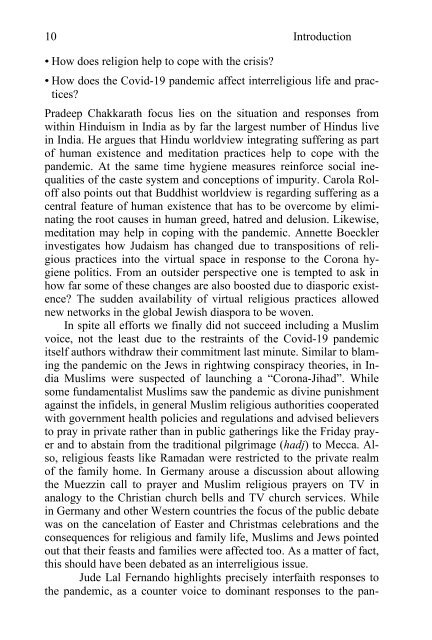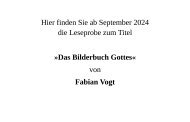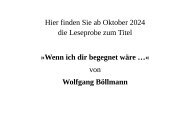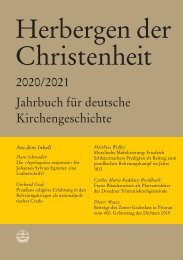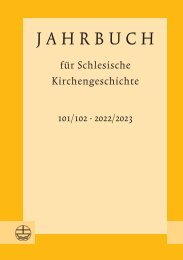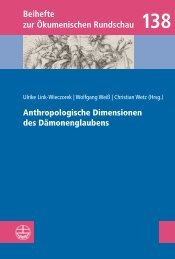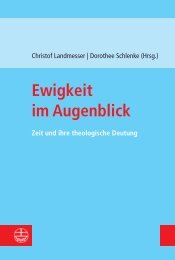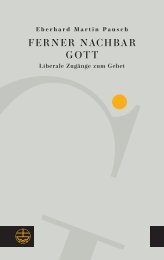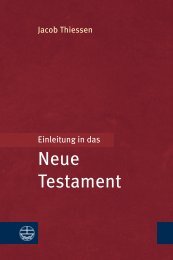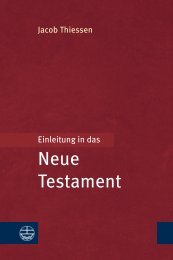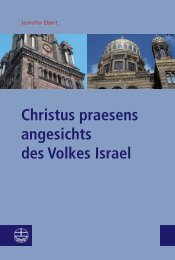Dorothea Erbele-Küster | Volker Küster (Eds.): Between Pandemonium and Pandemethics (Leseprobe)
This volume brings together contextual and intercultural responses to the Covid-19 Pandemic from theological and interreligious perspectives. It searches for models of interpretation provided by religious traditions and their sacred texts, and the ethical guidance religious communities offer for coping with the pandemic. The authors explore imaginative ways that transcend the New Normal towards a »Pantopia« that does not return to the pitfalls of the Old Normal but tackles the injustices that the virus has revealed in the current Pandemonium. They strive to enable their readers to react to the glocal pandemic and its aftermath theologically informed by intercultural and interreligious perspectives.
This volume brings together contextual and intercultural responses to the Covid-19 Pandemic from theological and interreligious perspectives. It searches for models of interpretation provided by religious traditions and their sacred texts, and the ethical guidance religious communities offer for coping with the pandemic. The authors explore imaginative ways that transcend the New Normal towards a »Pantopia« that does not return to the pitfalls of the Old Normal but tackles the injustices that the virus has revealed in the current Pandemonium. They strive to enable their readers to react to the glocal pandemic and its aftermath theologically informed by intercultural and interreligious perspectives.
Create successful ePaper yourself
Turn your PDF publications into a flip-book with our unique Google optimized e-Paper software.
10 Introduction<br />
• How does religion help to cope with the crisis?<br />
• How does the Covid-19 p<strong>and</strong>emic affect interreligious life <strong>and</strong> practices?<br />
Pradeep Chakkarath focus lies on the situation <strong>and</strong> responses from<br />
within Hinduism in India as by far the largest number of Hindus live<br />
in India. He argues that Hindu worldview integrating suffering as part<br />
of human existence <strong>and</strong> meditation practices help to cope with the<br />
p<strong>and</strong>emic. At the same time hygiene measures reinforce social inequalities<br />
of the caste system <strong>and</strong> conceptions of impurity. Carola Roloff<br />
also points out that Buddhist worldview is regarding suffering as a<br />
central feature of human existence that has to be overcome by eliminating<br />
the root causes in human greed, hatred <strong>and</strong> delusion. Likewise,<br />
meditation may help in coping with the p<strong>and</strong>emic. Annette Boeckler<br />
investigates how Judaism has changed due to transpositions of religious<br />
practices into the virtual space in response to the Corona hygiene<br />
politics. From an outsider perspective one is tempted to ask in<br />
how far some of these changes are also boosted due to diasporic existence?<br />
The sudden availability of virtual religious practices allowed<br />
new networks in the global Jewish diaspora to be woven.<br />
In spite all efforts we finally did not succeed including a Muslim<br />
voice, not the least due to the restraints of the Covid-19 p<strong>and</strong>emic<br />
itself authors withdraw their commitment last minute. Similar to blaming<br />
the p<strong>and</strong>emic on the Jews in rightwing conspiracy theories, in India<br />
Muslims were suspected of launching a “Corona-Jihad”. While<br />
some fundamentalist Muslims saw the p<strong>and</strong>emic as divine punishment<br />
against the infidels, in general Muslim religious authorities cooperated<br />
with government health policies <strong>and</strong> regulations <strong>and</strong> advised believers<br />
to pray in private rather than in public gatherings like the Friday prayer<br />
<strong>and</strong> to abstain from the traditional pilgrimage (hadj) to Mecca. Also,<br />
religious feasts like Ramadan were restricted to the private realm<br />
of the family home. In Germany arouse a discussion about allowing<br />
the Muezzin call to prayer <strong>and</strong> Muslim religious prayers on TV in<br />
analogy to the Christian church bells <strong>and</strong> TV church services. While<br />
in Germany <strong>and</strong> other Western countries the focus of the public debate<br />
was on the cancelation of Easter <strong>and</strong> Christmas celebrations <strong>and</strong> the<br />
consequences for religious <strong>and</strong> family life, Muslims <strong>and</strong> Jews pointed<br />
out that their feasts <strong>and</strong> families were affected too. As a matter of fact,<br />
this should have been debated as an interreligious issue.<br />
Jude Lal Fern<strong>and</strong>o highlights precisely interfaith responses to<br />
the p<strong>and</strong>emic, as a counter voice to dominant responses to the pan-


